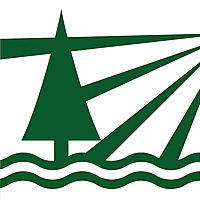Toward Computation-Guided Design of Tunable Hybrid Nanoparticle Self-Assembly
Engineering research seminar with Xin Qi, Assistant Professor of Chemistry at Dartmouth.
ZOOM LINK
Meeting ID: 995 9695 0090
Passcode: 153207
Inspired by naturally-occurring hierarchical materials, numerous beautiful and functional mesoscale architectures have been constructed in labs using solid-state nanoscale building blocks and bio- or biomimetic molecules via self-assembly. These materials hold great promise for cutting-edge applications because of their tunable photonic and electronic properties, which can be finely controlled by tailoring the sizes and shapes of the building blocks and patterns of the assembly. To date, much of the success in optimizing their properties has been empirical and driven by Edisonian approaches. Significant advances in the field could be realized by understanding the related interfacial phenomena and unraveling the system's convoluted energetics and entropic information therein. Computer simulations, such as molecular dynamic (MD) simulations, can be useful in achieving the goal, given their ideal spatiotemporal resolution and capability to reveal complex phenomena. However, the ubiquitous presence of rare events often prevents the direct application of MD methods; therefore, multi-scale theoretical toolkits with properly selected models from different levels are needed for these studies.
This talk presents recent advances in simulation methodologies and their roles in realizing computation-guided materials design. We constructed multi-scale simulation frameworks that not only manifested the driving force for self-assembly and superlattice formation, but also predicted new structures under other conditions, which have been successfully validated by experiments. The knowledge we gained on the distinctive roles of organic ligands has inspired new design principles in future studies.
